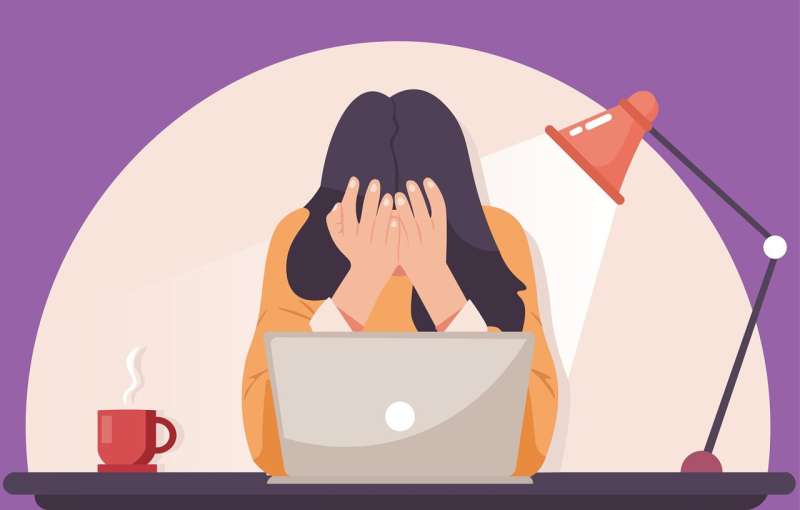This article has been reviewed according to Science X's editorial process and policies. Editors have highlighted the following attributes while ensuring the content's credibility:
fact-checked
peer-reviewed publication
trusted source
proofread
Nightly sleep is key to student success, shows study

College is a time of transition for young adults. It may be the first time students have the freedom to determine how to spend their time, but this freedom comes with competing interests from academics, social events and even sleep.
A multi-institutional team of researchers conducted the first study to evaluate how the duration of nightly sleep early in the semester affects first year college students end-of-semester grade point average (GPA). Using Fitbit sleep trackers, they found that students on average sleep 6.5 hours a night, but negative outcomes accumulate when students received less than six hours of sleep a night. The results are available in the Feb. 13 issue of the Proceedings of the National Academy of Sciences.
Previous studies have shown that total sleep is an important predictor for a broad range of health and performance outcomes. Sleep guidelines recommend teenagers get 8 to 10 hours of sleep every night. Many college students experience irregular and insufficient sleep.
David Creswell, the William S. Dietrich II Professor in Psychology and Neuroscience at the Dietrich College of Humanities and Social Sciences, led a team of researchers to evaluate the relationship between sleep and GPA. College students often push themselves to achieve, and GPA is the important marker of academic success.
"Animal studies have shown how critical sleep is for learning and memory," said Creswell. "Here we show how this work translates to humans. The less nightly sleep a first year college student gets at the beginning of the school term predicts lower GPA at the end of the term, some five to nine weeks later. Lack of sleep may be hurting students' ability to learn in their college classrooms."
Past work with animals has shown that memories that form during the day are consolidated during sleep. When normal sleep patterns are interrupted, the content learned during the day is lost. Extending this logic to students, the researchers were curious if interrupted or inadequate sleep could impair their academic learning and if this would be apparent by academic achievement.
The study evaluated more than 600 first-year students across five studies at three universities. The students wore wrist Fitbit devices to monitor and record their sleep patterns. The researchers found that students in the study sleep on average 6.5 hours a night.
More surprising, the researchers found that students who receive less than six hours of sleep experienced a pronounced decline in academic performance. In addition, each hour of sleep lost corresponded to a 0.07 decrease in end-of-term GPA.
"Once you start dipping below six hours, you are starting to accumulate massive sleep debt that can impair a student's health and study habits, compromising the whole system," said Creswell. "Most surprising to me was that no matter what we did to make the effect go away, it persisted."
The study controlled for past academic performance, daytime napping, race, gender and first-generation status. Several of the studies also controlled for total academic course load. None of these factors affected the overall impact of nightly sleep on GPA.
"A popular belief among college students is value studying more or partying more over nightly sleep," said Creswell. "Our work here suggests that there are potentially real costs to reducing your nightly sleep on your ability to learn and achieve in college. There's real value in budgeting for the importance of nightly sleep."
This works suggests the importance of building structured programs and interventions at institutions of learning that encourage undergraduate students to focus on their sleep.
More information: J. David Creswell et al, Nightly sleep duration predicts grade point average in the first year of college, Proceedings of the National Academy of Sciences (2023). DOI: 10.1073/pnas.2209123120. www.pnas.org/doi/10.1073/pnas.2209123120
Journal information: Proceedings of the National Academy of Sciences
Provided by Carnegie Mellon University




















